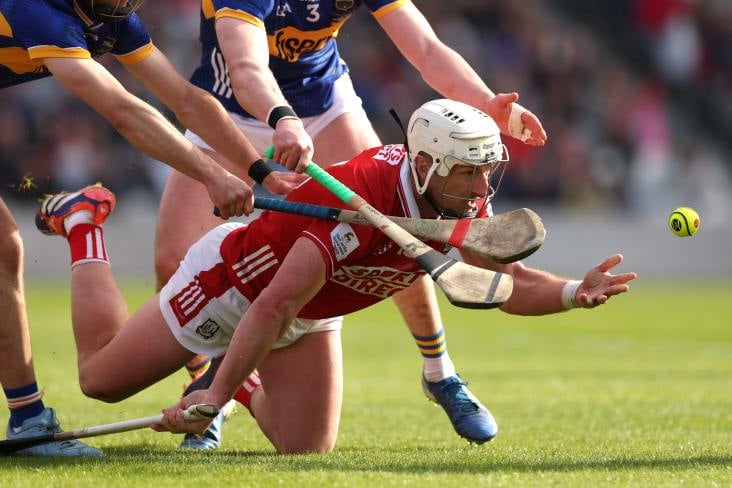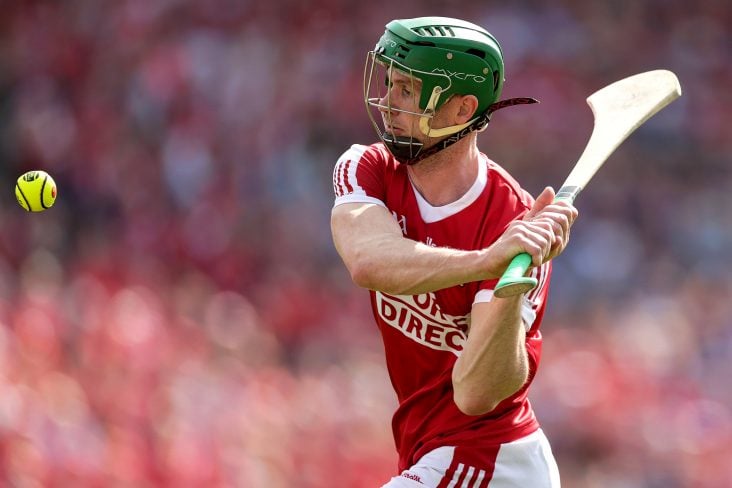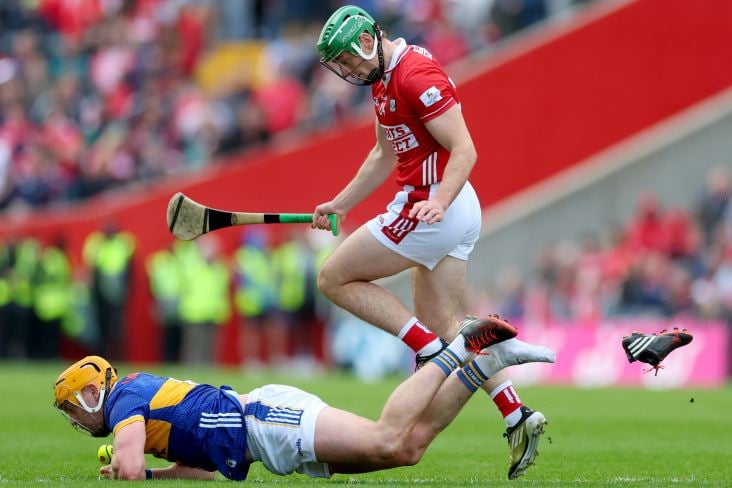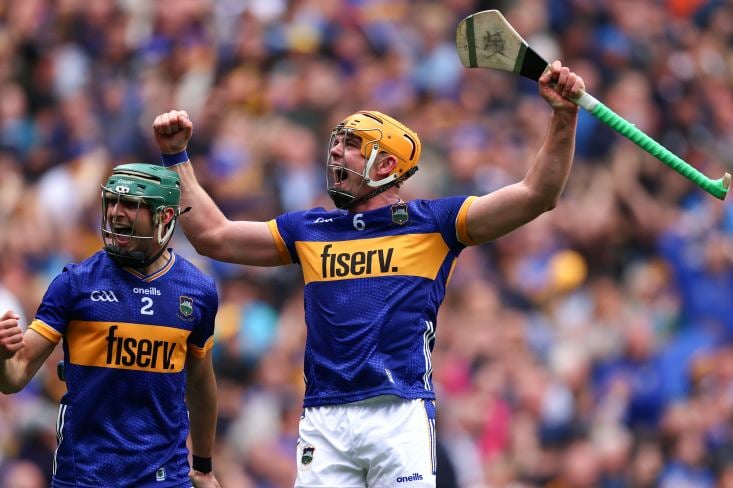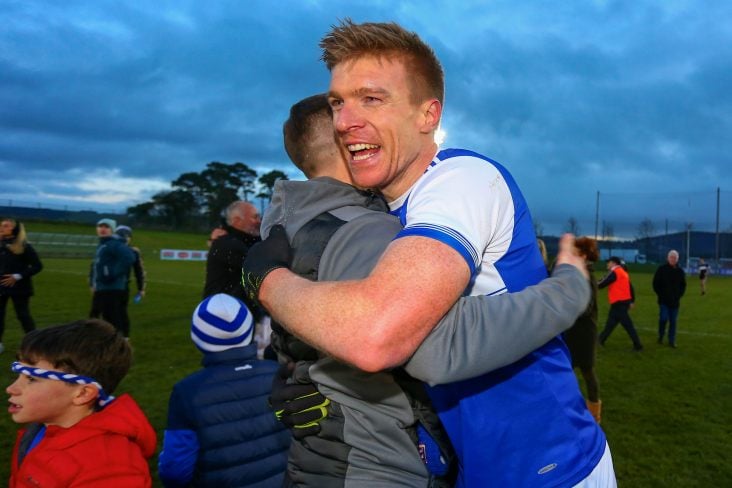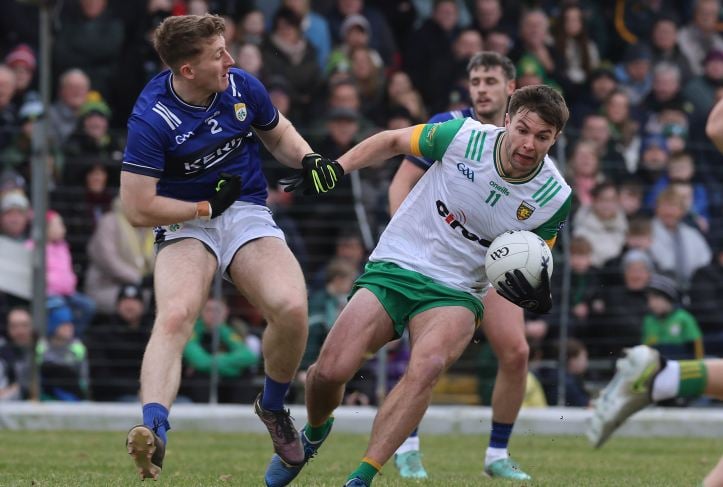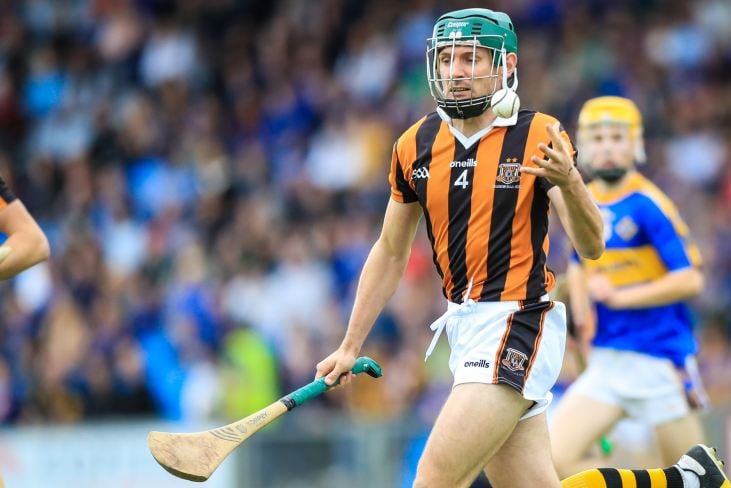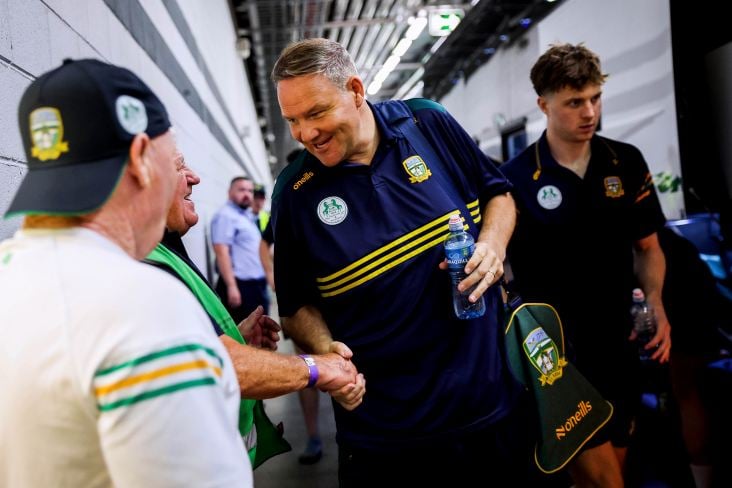Referees view: Q&A with Joe McQuillan
January 15, 2014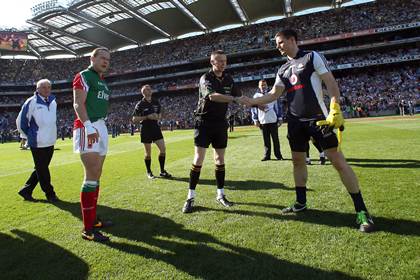
Captains Andy Moran and Stephen Cluxton with referee Joe McQuillan before the 2013 All-Ireland SFC final ©INPHO/Donall Farmer
Shane Corrigan: Firstly, Joe, I guess I should ask what took you into refereeing and what made you want to be a referee in the first place?
Joe McQuillan: I picked up a bad shoulder injury and just wanted to keep fit after it. I couldn't play football at the time and at the same time Kill were stuck for a club referee and I started off doing ladies games when I was injured. The injury probably kept me out of football for two or three years and to keep fit was the main reason I got involved. When I got into it first it wasn't to get refereeing an All-Ireland final anyway.
SC: Do you remember the first game you refereed in?
JM: No. It would have been a ladies game, but Redhills and Cornafean was the first senior league game that I refereed back in 1998.
SC: How long was it before you started refereeing at inter-county level?
JMcQ: I went on to the Ulster panel in 2000 and did the Ulster Minor League final in 2001 and 2002 and then the Ulster Minor Championship final in 2003, I think it was. In 2004, I joined the national panel.
SC: What was the main difference you found between refereeing club games and inter-county games when you started?
JMcQ: I think you have a hell of a lot more respect at inter-county games. Any forms of abuse would be at a minimum at inter-county games as regards club games. It's probably because the standard at inter-county would be stronger than it would be at club games. The attitude to the referee at inter-county would be a hell of a lot better than it would be at club level.
SC: What was your first All-Ireland SFC game?
JMcQ: It was in 2004 between Roscommon and Sligo in Hyde Park. It was the first round of the Connacht championship and the game ended in a draw.
SC: Did you feel much nerves or pressure going into it?
JMcQ: It would have been fierce pressure at that stage alright. It would have been the first time I was refereeing in front of a full house and it would have been a very nerve wrecking experience. But it was a great experience at the same time and it was a great game of football. It was televised live and it was a cracking game and probably one of the reasons why I was pushed on a bit faster. The fact that it was a televised game, a tight game and it went well for me. You'll always be measured on a tight game more than a one-sided game because every decision is vital in a very tight game. So I was probably lucky the way that I got a televised game as my first championship match.
SC: You were chosen for the 2011 All-Ireland SFC final, obviously a tremendous honour. How do you go about preparing for such an occasion?
JMcQ: You will always have a feeling that you're going to be in the running for certain games. In 2011, I felt I was in with a chance alright, but depending on who gets to it as well, it obviously has an impact as to who might referee it. In regards to preparing, it's another game and you still have to prepare the same as any other game. I know it's the biggest game of the year, and that will add its own wee bit of pressure, but the preparation wouldn't have been that much different to any other game. At the end of the day, it's still another game and it has to be refereed the exact same way as any other one. Okay, certainly the fact that it's an All-Ireland final does bring its own bits of nerves and everything and it has slightly different schedule that weekend because you're weekend is in Dublin. You don't have that for other games. So it's slightly different than any other game but, on the field, nothing different.
SC: Did you maybe feel that bit more comfortable going into the 2013 final?
JMcQ: I got three weeks' notice in 2011 for the final and this time I got 10 days' notice. So it kind of came on top of me any awful lot quicker and I was very busy at work and one thing or another and never really got thinking that much about it until the weekend of it. I wouldn't say I was any calmer going into it. You'll never be calm going into an All-Ireland, especially on the morning of it. But look at; you know what to expect that wee bit more two years later than you did the last time. It still carries its own pressures because nobody wants to make a bad job of the biggest game of the year.
SC: Were you surprised to be given the final again after having refereed one two years previous?
JMcQ: I suppose Brian Gavin had been appointed to referee the hurling final and he'd done it in 2011 as well, so they were probably going to make the appointment based on whoever was on form at the time. Of course, it depended on who was in the final as well. So I knew that once it was a Leinster-Connacht final that there was a brave chance that I was going to be in the running for it again, but, again, until you get that call you're never sure.
SC: The general consensus afterwards was that you did a good job. As a referee, can you ask for anything more than that?
JMcQ: You'll never get perfection. You come off the field the day of the All-Ireland and you can't do anything new at that stage because what has happened has happened. There will always be a decision or two in the game that maybe when you look back you might have changed, but overall I would have been happy enough with it. I'd have no major complaints out of refereeing the All-Ireland. I know there might have been a few complaints from managers but that's them trying to get their own wee gripes out after and I don't think there were many decisions that would have differed had I refereed it today. Tweet
